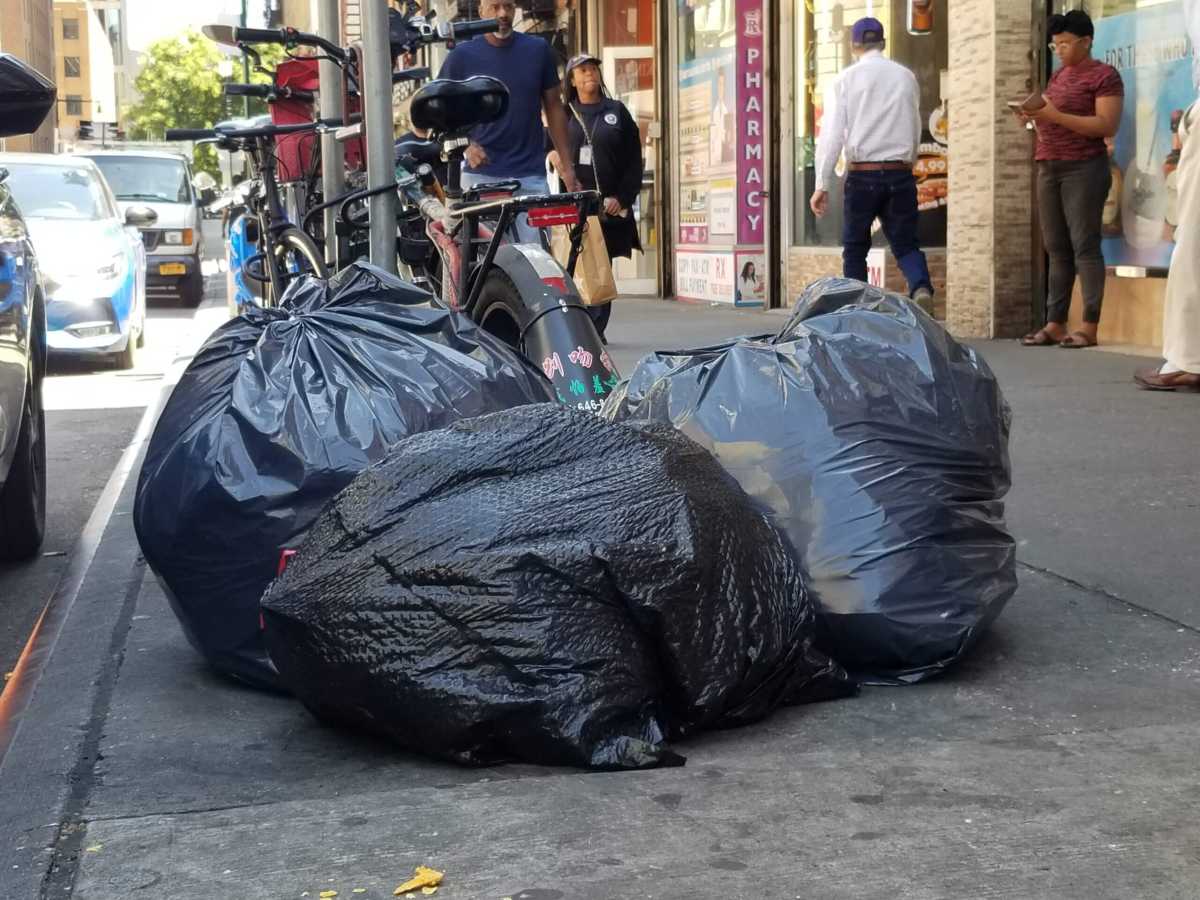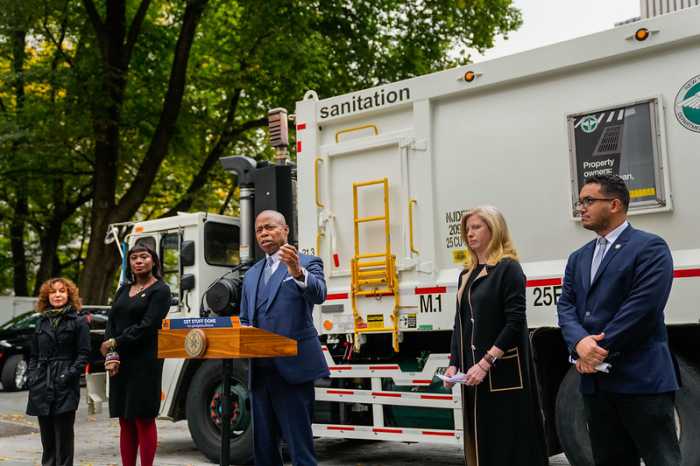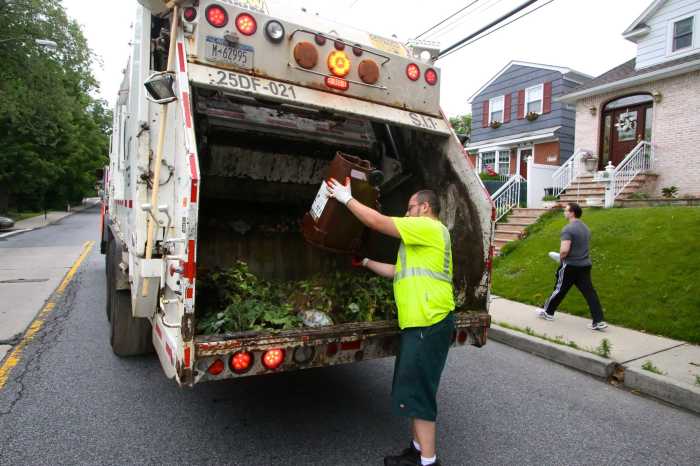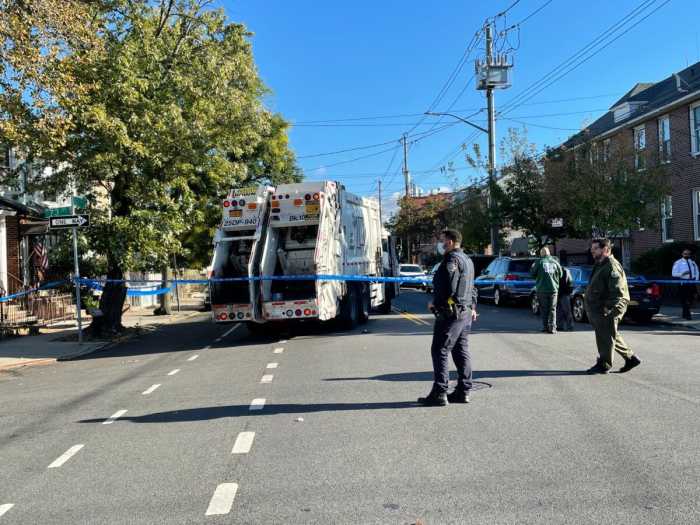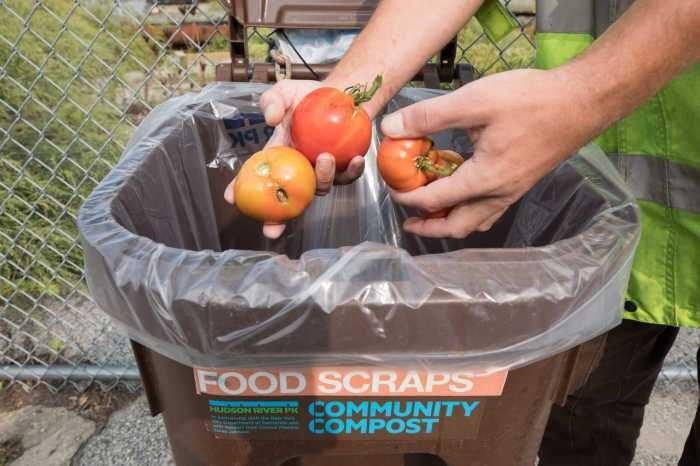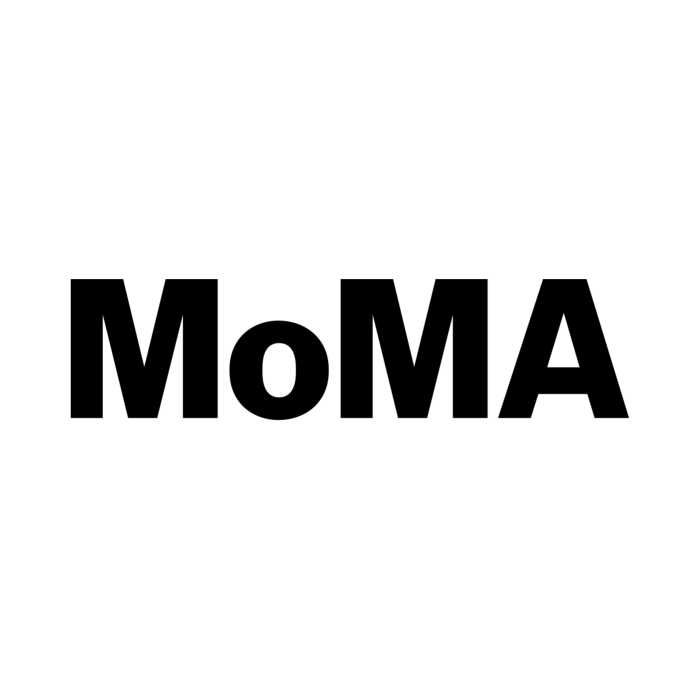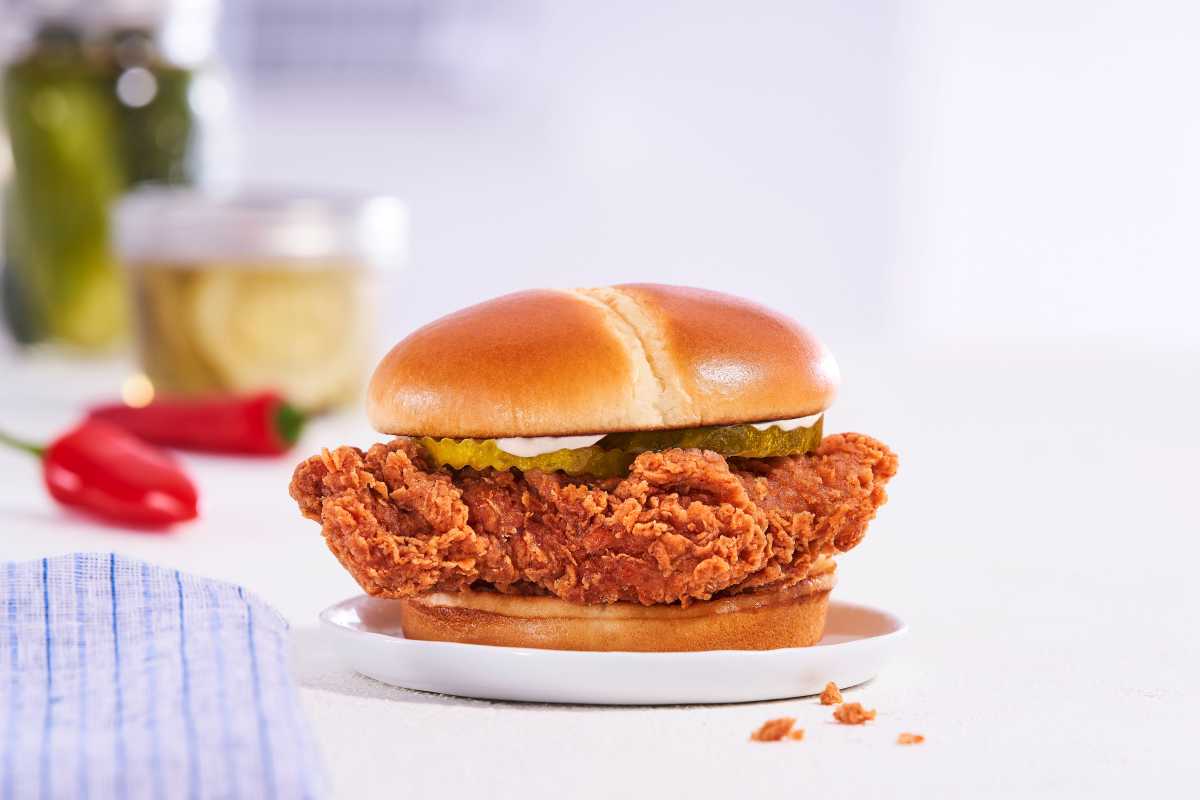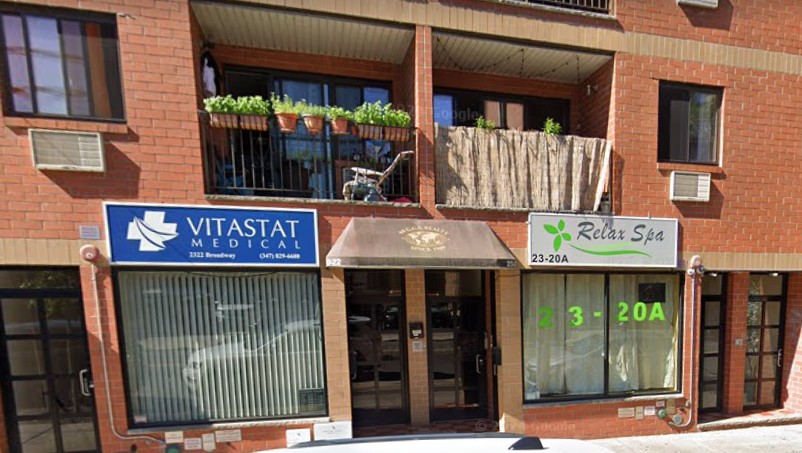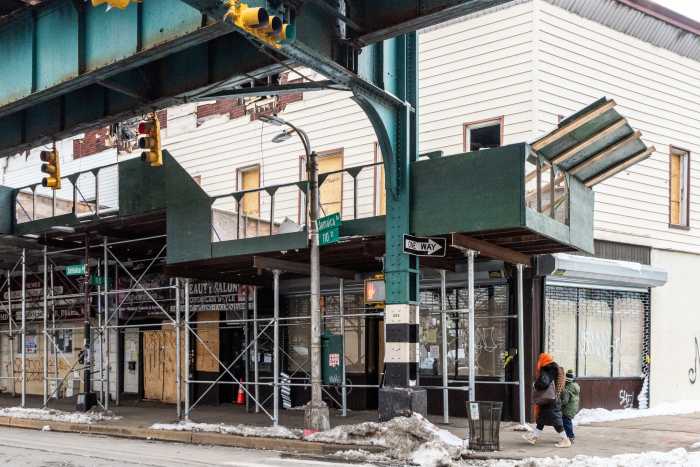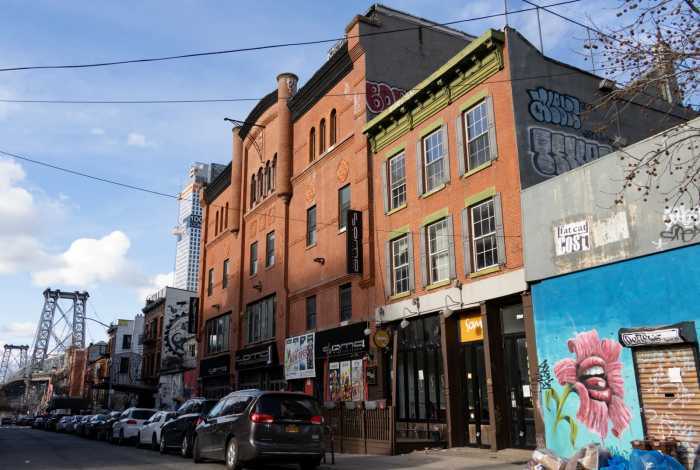Time is running out for the city’s restaurants and grocery stores to start putting their trash in solid containers as part of the Adams administration’s ongoing War on Rats.
All of the city’s food-related businesses — including thousands of restaurants, grocery stores, bodegas and caterers — have until Friday, Sept. 1, to cease putting their trash in black plastic bags and putting it out on the curb. Instead, they must dispose of waste in solid receptacles with tight-fitting lids, which are harder for rats to penetrate.
The rule officially went into effect on Aug. 1, but the city won’t start handing out summonses until next week. The city’s Sanitation Department (DSNY) says it is handing out 1,000 warnings each day to businesses to start containerizing their rubbish, and is encouraging residents to “rat” on local businesses failing to comply.
Starting Sept. 5, the rule will also extend to all non food-related chain businesses in the city with five or more locations.
Fines start at $50, increasing to $100 for a second offense and $200 for third offenses and beyond in a twelve-month period.
DSNY says that businesses are doing their part to get into compliance, an act the agency contends is “not rocket science” and has been done in Europe for decades.
“We’re thrilled that so many food-based businesses have moved their trash out of smelly, unsightly black bags and into sealed rat-fighting containers,” said DSNY spokesperson Vincent Gragnani. “All you have to do is walk down the street to see that businesses all over town are following the rules.”
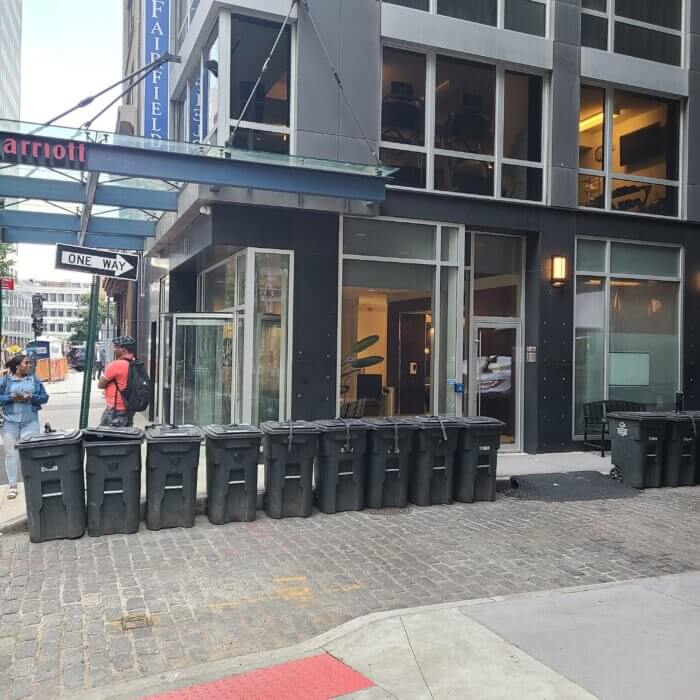
Mayor Eric Adams has made no secret of his vitriol for the city’s approximately 3 million rats, hiring a “rat czar” to coordinate rodent mitigation across city agencies and, as Brooklyn Borough President, piloting an unsightly device that trapped and drowned rats at Borough Hall.
The mayor — who himself was fined $300 in February for a rat infestation at his Bedford-Stuyvesant townhouse — has also sought to alter New York’s garbage disposal patterns, which have often been singled out as a prime reason for the city’s unique hospitality to rats. A stroll down any given street will often bring people in contact with mountains of black bags filled with putrid garbage, functioning as a feast for pests.
Residential trash must now be set out four hours later than before, at 8 p.m., on collection day, ostensibly to “send rats packing.” The administration also plans to expand curbside compost collection, currently active only in Queens, to all five boroughs by next fall; the mayor’s program is voluntary, but the City Council passed a bill in June creating a mandatory citywide program to separate organic waste into brown bins, separate from other trash.
The city has also placed dumpsters outside Harlem schools and will soon do so at some residences as part of a pilot for residential containerization, which could eventually change the way the city takes out its trash.
But the new rules, particularly those for food service businesses, are engendering some pushback. In over 100 public comments responding to the proposed rule, several business owners contended that the mandate would be difficult to meet without hurting their bottom line.
One business owner, Kate Foster, said in June that the rule would be “impossible for small food businesses” with limited space indoors or outdoors to store their receptacles.
“The proposed law as it stands would create a hardship for small food businesses with limited space indoors and on our sidewalks,” said Foster.
Another business owner worried that the bins could be vulnerable to theft if left out overnight for collection. Still others argue the bins will require far more frequent trash collection since they can fill up quickly, an issue DSNY has also identified regarding residential containerization.
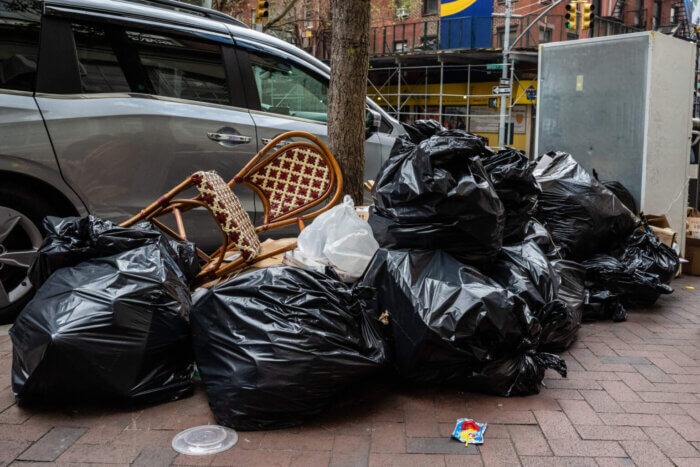
What’s more, the private trash haulers that pick up commercial garbage use trucks designed to collect garbage in individual bags, not in bins. Jessica Caron, of Diverse Recycling Solutions, said the design of the trucks collecting New York’s garbage means workers will have to empty the bins by hand, instead of using hydraulics common on trucks in other cities.
Others expressed concern over the potential loss of curb space for pedestrians and parking.
“We all want a clean city, and we love the idea of containerized garbage. However, we believe that this new regulation will put an undue burden on fast-food businesses,” said Bronx Checkers franchisee Vijay Ghei. “These businesses are already struggling to make ends meet, and this new regulation will only make things worse.”
Andrew Rigie, head of the restaurant trade group New York City Hospitality Alliance, says many businesses can only comply with the rule by potentially repelling away customers, due to space constraints. Storing bins inside could lead to foul odors in dining areas or even conflicts with food prep areas that must remain clean, he noted, while outdoor storage can limit a restaurant’s ability to provide outdoor dining.
“I think there’s still a long way to go for many restaurants to comply and determine whether or not they can or not,” said Rigie, who said he still supports containerization for businesses with the capacity to do so.
Other issues could include weather-related mishaps, like if bins get strewn about in storms or during times of heavy wind, as well as challenges getting bins up and down into cellars.
“There are a lot of logistical challenges that make it nearly impossible, or impossible, for some restaurants to comply,” Rigie said.
DSNY, on the other hand, sees it differently, positing the bins are cleaning up and even beautifying grimy spaces frequented by New Yorkers.
“A few months ago, this curb would have been covered in smelly, rat-attracting bags filled with food,” DSNY tweeted about a curb in Tribeca in June, where a local business had started putting trash in containers. “They said it couldn’t be done – but we GOT IT DONE.”



